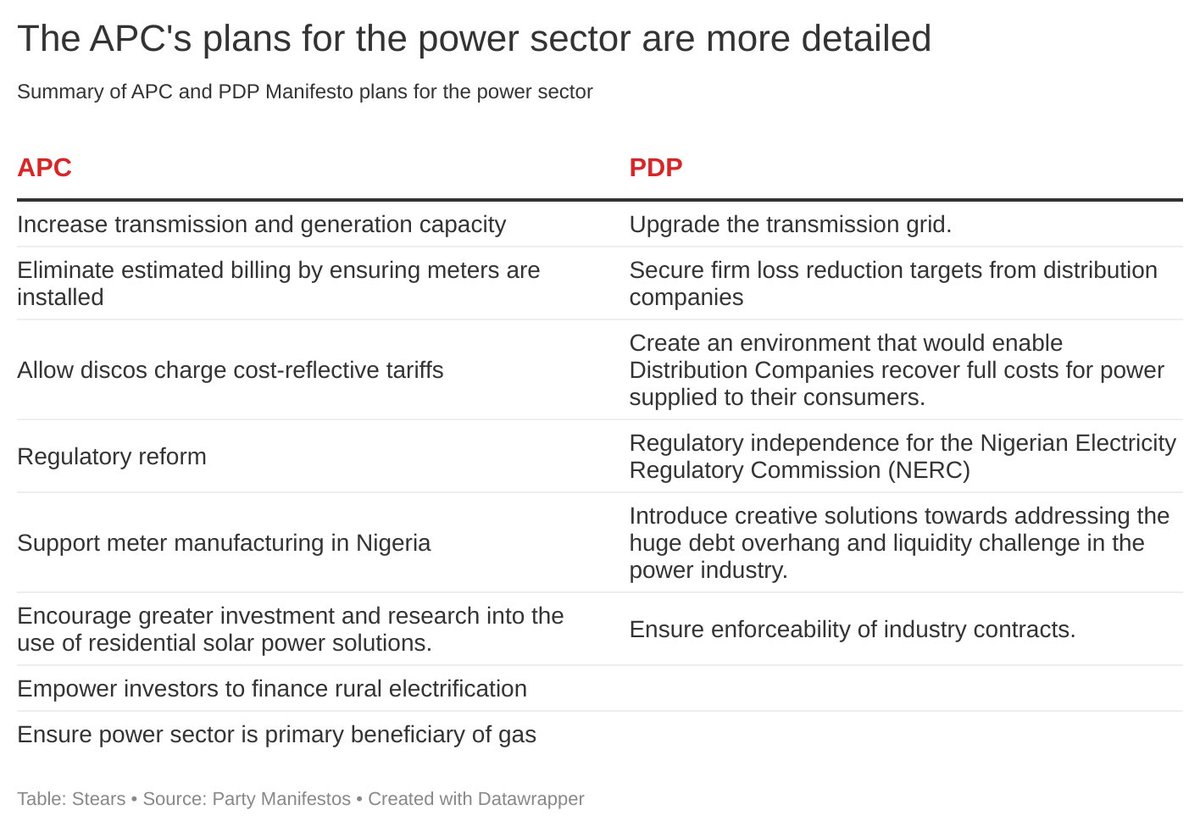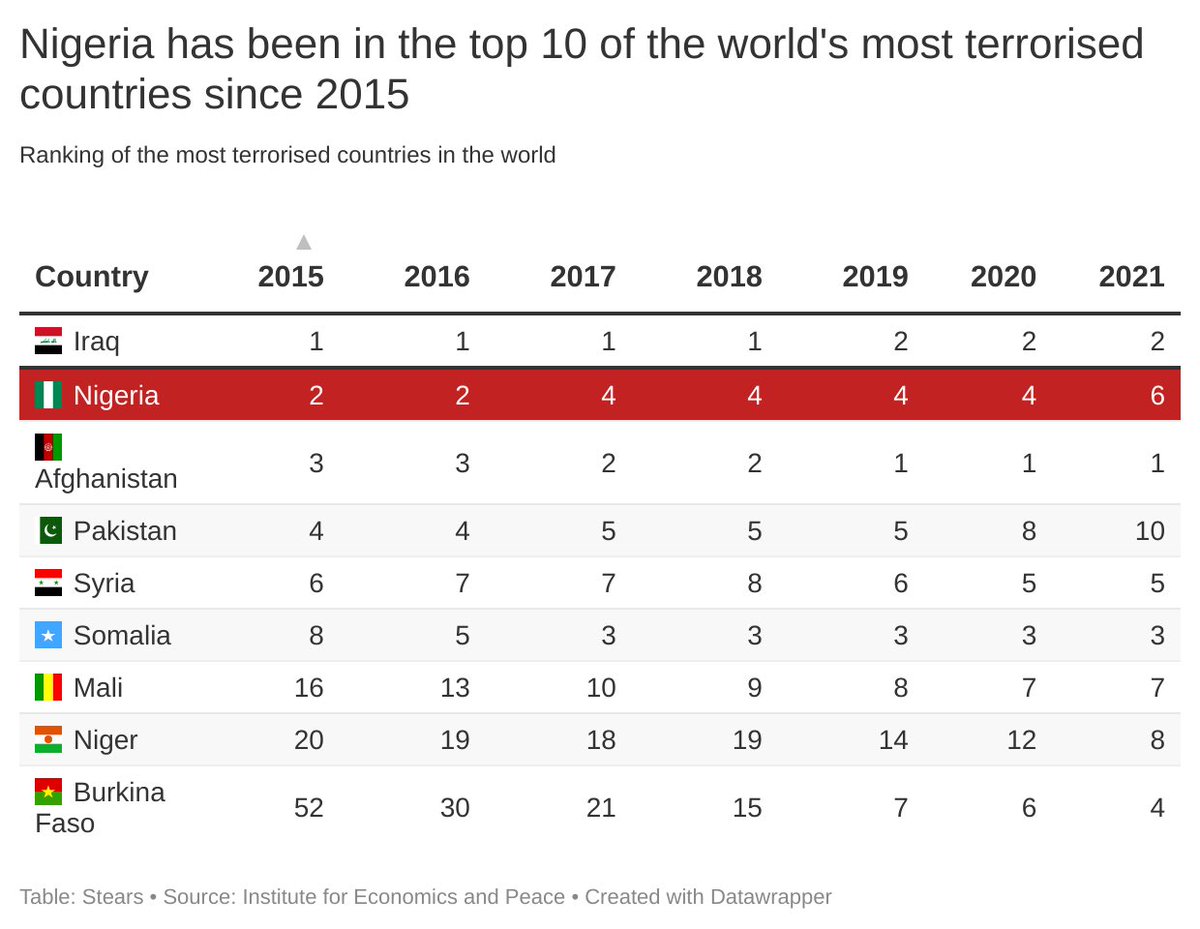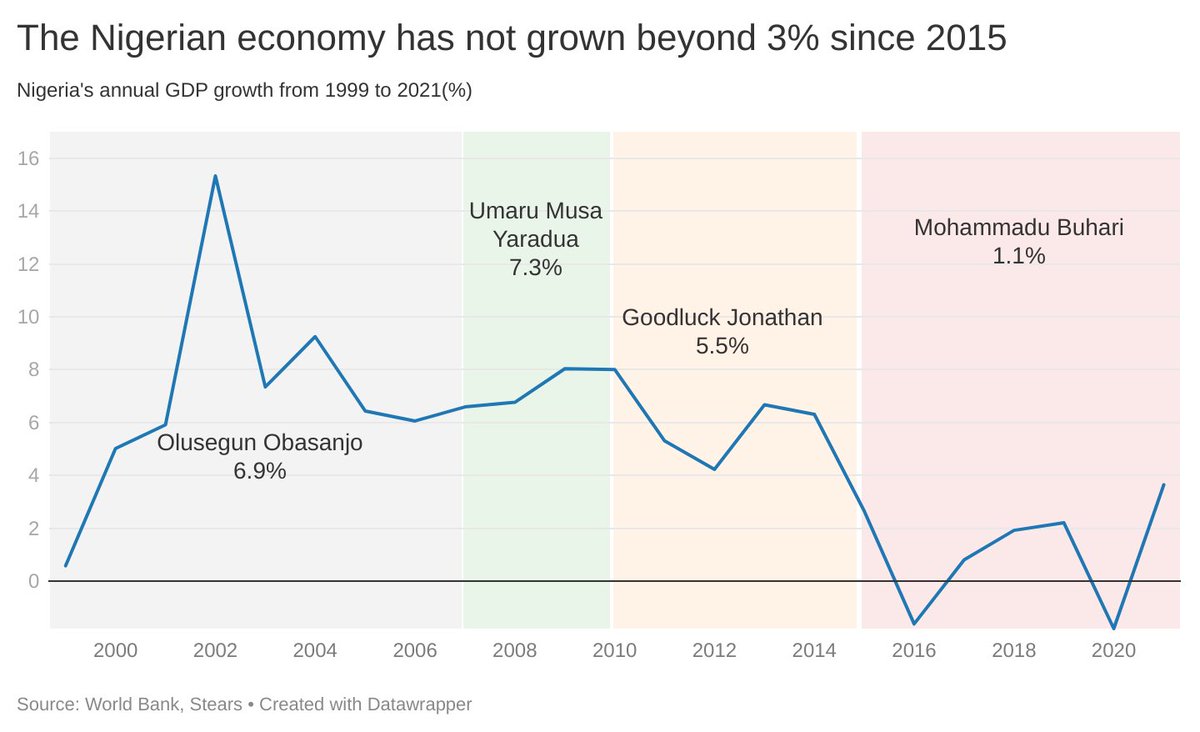
Peter Obi, seems to be the best option for giving Nigeria the direction and energy it needs, but he also has the smallest chance of winning.
#StearsPremiumToday
bit.ly/3VWomvy
#StearsPremiumToday
bit.ly/3VWomvy
We say Peter Obi has the smallest chance of becoming president among the top parties (APC, PDP & LP) because the Labour Party is trying to do something not done so far in Nigerian politics: Win the presidency without holding a single governorship and almost zero legislative seats
Currently, the APC and PDP hold a total of 35/36 governorship and 420/469 federal legislative seats. The Labour Party holds only 1 senate seat. In this article, we talk about how important structure is in Nigerian politics.
stears.co/premium/articl…
stears.co/premium/articl…
While various polls show Peter Obi in the lead, we do not view them as representative in terms of coverage or number of respondents. Also, the Labour Party has little experience in national campaigns when compared to the APC and PDP. This will also matter in a close race. 
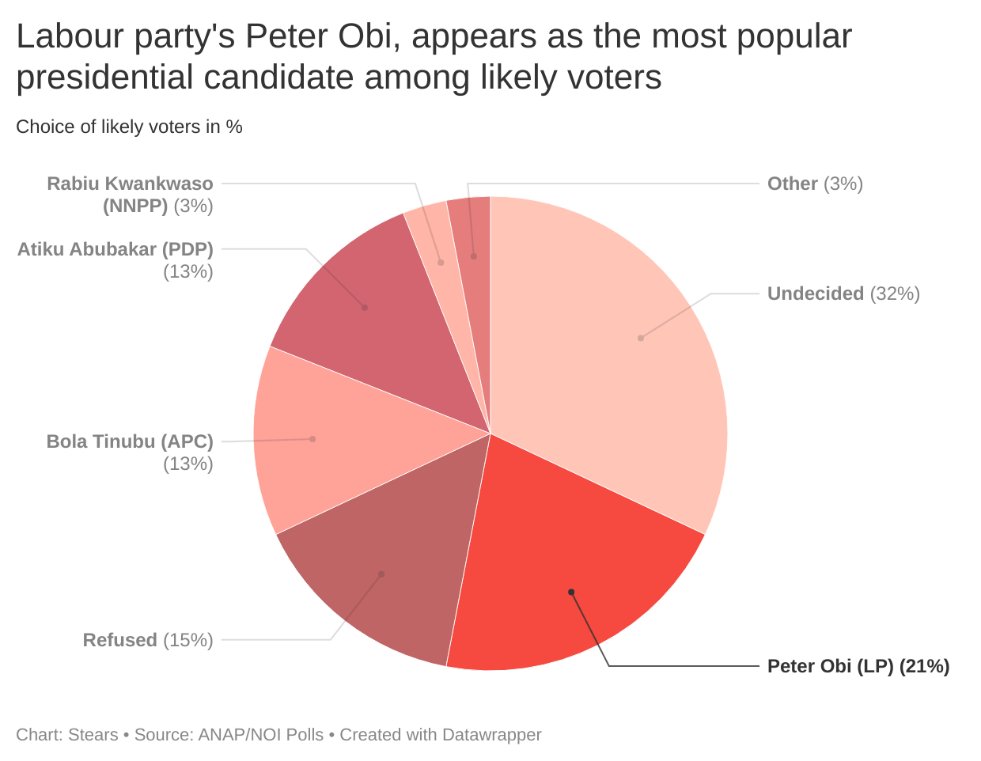
Finally, the Labour Party couldn’t muster any decent showing in the Osun elections of July 18th. Admittedly this was only shortly after Peter Obi joined the party, but it still speaks to the difficulty in converting enthusiasm into votes. 
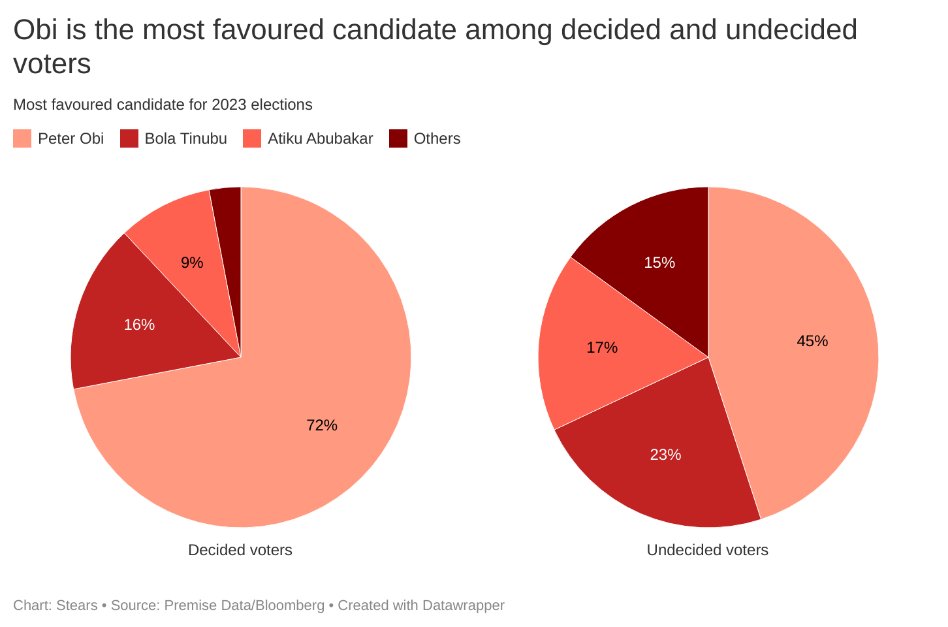
• • •
Missing some Tweet in this thread? You can try to
force a refresh




